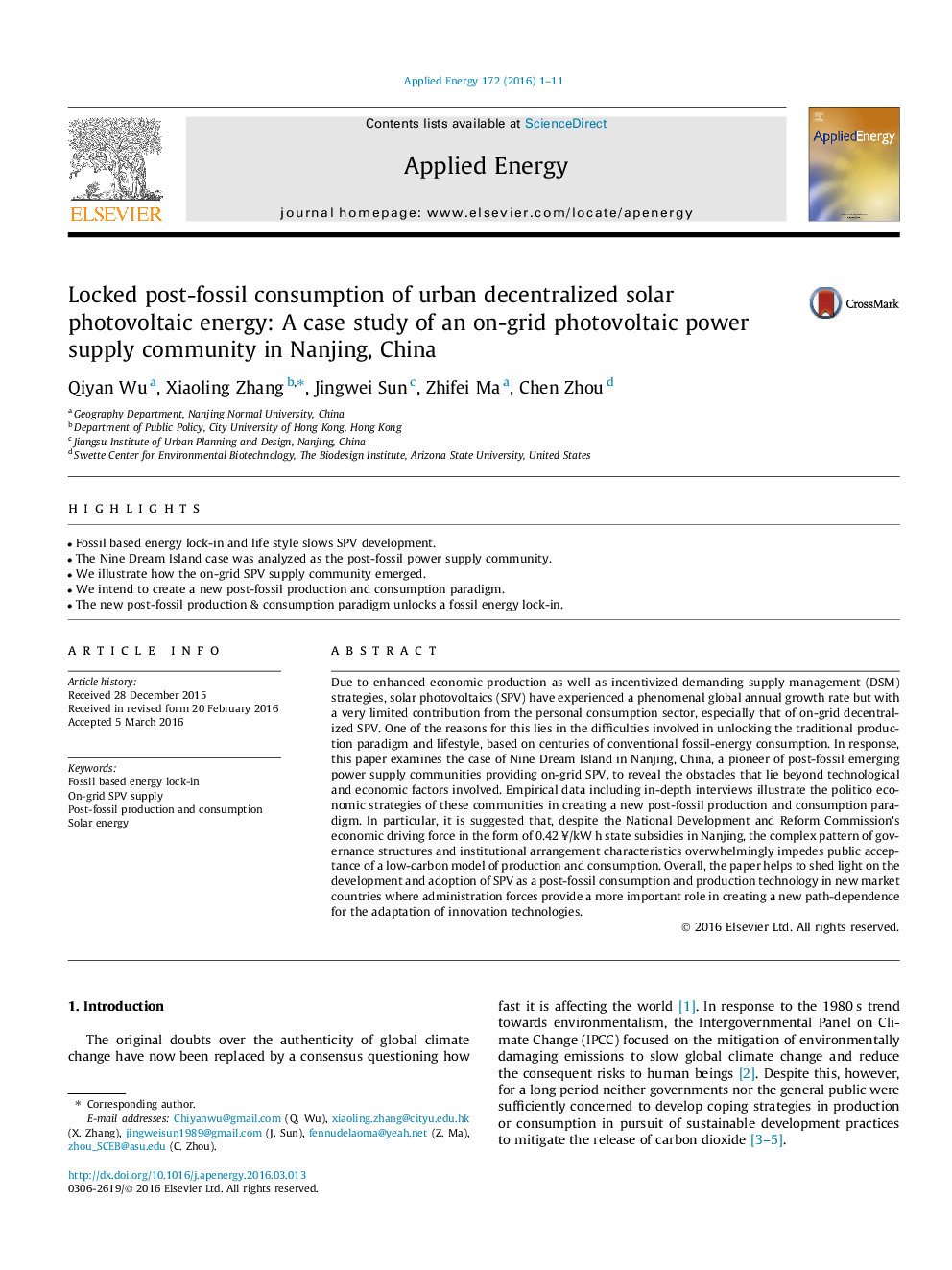| Article ID | Journal | Published Year | Pages | File Type |
|---|---|---|---|---|
| 6683188 | Applied Energy | 2016 | 11 Pages |
Abstract
Due to enhanced economic production as well as incentivized demanding supply management (DSM) strategies, solar photovoltaics (SPV) have experienced a phenomenal global annual growth rate but with a very limited contribution from the personal consumption sector, especially that of on-grid decentralized SPV. One of the reasons for this lies in the difficulties involved in unlocking the traditional production paradigm and lifestyle, based on centuries of conventional fossil-energy consumption. In response, this paper examines the case of Nine Dream Island in Nanjing, China, a pioneer of post-fossil emerging power supply communities providing on-grid SPV, to reveal the obstacles that lie beyond technological and economic factors involved. Empirical data including in-depth interviews illustrate the politico economic strategies of these communities in creating a new post-fossil production and consumption paradigm. In particular, it is suggested that, despite the National Development and Reform Commission's economic driving force in the form of 0.42 ¥/kW h state subsidies in Nanjing, the complex pattern of governance structures and institutional arrangement characteristics overwhelmingly impedes public acceptance of a low-carbon model of production and consumption. Overall, the paper helps to shed light on the development and adoption of SPV as a post-fossil consumption and production technology in new market countries where administration forces provide a more important role in creating a new path-dependence for the adaptation of innovation technologies.
Keywords
Related Topics
Physical Sciences and Engineering
Energy
Energy Engineering and Power Technology
Authors
Qiyan Wu, Xiaoling Zhang, Jingwei Sun, Zhifei Ma, Chen Zhou,
